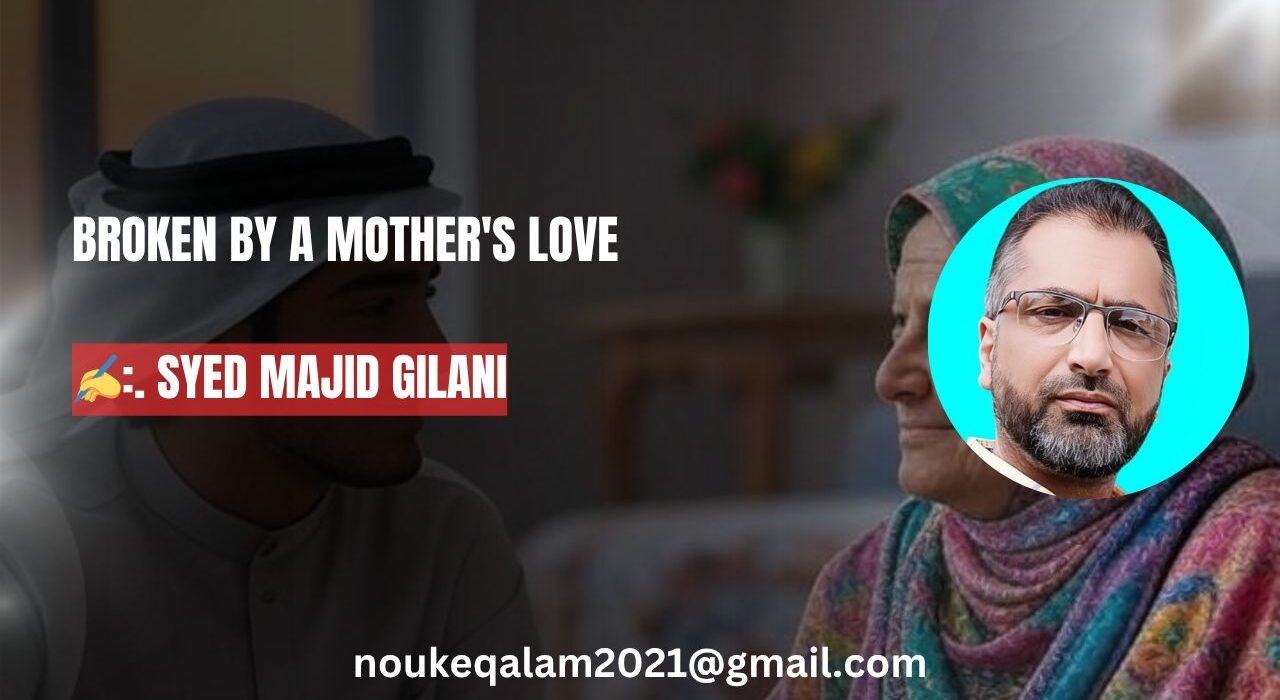The Pencil That Drew the Noose: A Cautionary Tale of Parenting Gone Wrong
Kulsum and the Consequences of Her Irresponsible Love
Growing up, I was fortunate to be surrounded by a close-knit community of family, neighbors, and relatives who valued the tradition of storytelling. These tales, rich with life lessons, helped shape our morals and guide us through difficult times. Among the most memorable storytellers was my grandmother, the late Syeda Sakina Gilani—a woman of great wisdom and high moral values. Not only did she offer valuable advice, but she also lived by the principles she shared. Her stories were made even more special by the fact that she reserved them for our family, making them personal, meaningful, and unforgettable.
One particular story she often told left a deep impression on me—a haunting reminder of how unchecked indulgence, toxic behavior, and misguided love can destroy lives.
In a quiet village lived a woman named Kulsum, with her husband Aslam and their only son, Gulzar. Aslam was a hardworking, simple man who traveled far and wide to earn a living for his family. However, back home, life was difficult. Kulsum’s bitter attitude and controlling nature made the household suffocating. She pushed Aslam further away, leaving him no option but to spend most of his days working in distant places. Despite his efforts to provide for them, Kulsum ruled the house alone, showering her son Gulzar with obsessive love and attention. In her eyes, Gulzar belonged to her alone, while Aslam was nothing more than a breadwinner, denied any say in his son’s upbringing.
A neighbor once shared a painful truth with Aslam: Kulsum’s cruel behavior was not her own invention but something inherited from her mother, Zoona. Years ago, Zoona had made her husband Bashir’s life miserable with her toxic, bitter nature. She eventually abandoned him and remarried, leaving behind a broken family and a daughter poisoned by her influence—Kulsum, who learned those same destructive habits.
As Gulzar began attending the local school, his behavior reflected the bitterness at home. He was loud, disruptive, and defiant. Sadly, these traits were not accidental—his mother deliberately encouraged him to challenge rules and norms. His kind-hearted father watched helplessly as his son was led astray.
One day, Gulzar returned home with a stolen pencil. He admitted to taking it from a classmate’s bag without permission. Instead of correcting him or explaining that stealing was wrong, Kulsum said nothing. That small but significant moment silently gave Gulzar permission to blur the lines between right and wrong.
Not long after, Gulzar got into a fight at school. When called to the principal’s office, Kulsum shockingly defended him, blaming the other child and refusing to hold Gulzar accountable. This dangerous habit of justifying his behavior continued, and Gulzar began to see his mother’s defense as a green light for misconduct.
As years passed, his misdeeds grew bolder. He started smoking. When his classmates reported him to school authorities, Kulsum again dismissed it. “At least he’s not gambling or committing serious crimes,” she said, further normalizing his reckless behavior. Her carelessness only deepened Gulzar’s belief that he could act without consequence.
By his teenage years, Gulzar had dropped out of school and turned to theft. With his mother’s silent approval, he became a skilled burglar, targeting homes in the village. Meanwhile, Aslam—now too old and frail to travel—remained home, managing a small business. It pained him to see his son’s decline, but the damage was already done.
The final tragedy struck one dark night. During a burglary, a homeowner confronted Gulzar. In the struggle that followed, Gulzar killed the man. He was arrested, tried, and sentenced to death by hanging.
As per custom, the condemned man was granted a final wish. To everyone’s shock, Gulzar requested that his mother be hanged alongside him. The King, stunned by this strange demand, asked him to explain.
With tears in his eyes, Gulzar told the story of his ruin. He explained how his mother’s silence over small wrongdoings—starting with the stolen pencil—had planted the seeds of his destruction. She shielded him in every conflict, dismissed his bad habits, and justified every wrong turn. She never corrected him and, in doing so, undermined his father’s efforts to raise him with integrity and discipline.
“I am what I am today because of her,” Gulzar confessed. “Had she guided me, stopped me, or even scolded me when I first went astray, I might have become a good man.”
Kulsum, hearing these words, was shattered by guilt. She realized—too late—that her misguided love and refusal to set boundaries had cost her only son his life and destroyed her family.
The King, bound by tradition, granted Gulzar’s wish. As mother and son stood together at the gallows, Gulzar’s final words served as a chilling warning: unchecked indulgence, irresponsible parenting, and the absence of discipline lead only to ruin.
This old story, passed down through generations, remains a timeless lesson about the importance of responsible parenting and the dangers of enabling harmful behavior. My grandmother, Syeda Sakina Gilani, would often end this tale with a gentle reminder:
“Love your children with all your heart, but balance it with discipline and accountability. For it is only through this balance that we raise good, kind, and responsible human beings, and build a peaceful, compassionate society.”
About the Author:
Syed Majid Gilani is a government officer by profession and a storyteller by heart. He writes about human emotions, family bonds, moral values, and heartfelt experiences drawn from the unseen threads of community life. He can be reached at syedmajid6676@gmail.com.






